Ditapis dengan
E-book A Memory of Ice : The Antarctic Voyage of the Glomar Challenger
Growing up in Western Australia, in the southwestern corner of that huge and sparsely populated state, it was difficult to be unaware of the bizarre splendour, diversity and colour of the local vegetation. This, the South West Botanical Province, is now recognised as one of 25 biodiversity hotspots in the world. Its abundance of flowering plants, possibly over 9,000 species, is greater than alm…
- Edisi
- -
- ISBN/ISSN
- 9781760462956
- Deskripsi Fisik
- 246 hlm
- Judul Seri
- -
- No. Panggil
- 998 TRU a
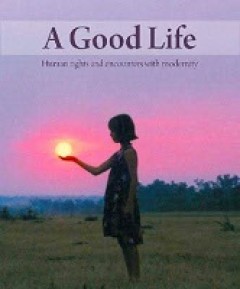
E-Book A Good Life: Human Rights and Encounters with Modernity
This book is a story. It’s a story about ordinary people in very different parts of the world dealing with rapid change in the late twentieth and early twenty-first
- Edisi
- -
- ISBN/ISSN
- 9781922144669
- Deskripsi Fisik
- 314 halaman
- Judul Seri
- -
- No. Panggil
- 909.82 EDM a
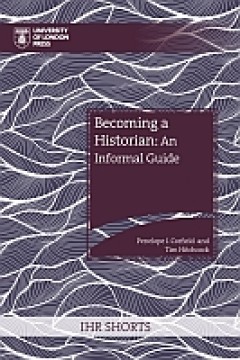
E-Book Becoming a Historian: An Informal Guide
Writing history is an art and a craft. This handbook supports research students and independent scholars by showing how the historical profession works and how to participate in its vibrant community of scholars. It outlines techniques to help design large-scale research projects, demonstrates the difference between quantitative and qualitative research methodologies and provides advice on brin…
- Edisi
- -
- ISBN/ISSN
- 9781914477164
- Deskripsi Fisik
- 216 halaman
- Judul Seri
- -
- No. Panggil
- 901 COR b
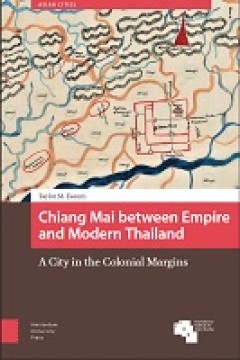
E-Book Chiang Mai between Empire and Modern Thailand: A City in the Colonial …
Urban histories tend to be dominated by large, global cities. But what does the history of the modern, colonial era look like from the perspective of smaller cities? By shifting the focus from the metropolis to the secondary city of Chiang Mai, this study provides an alternative narrative of the formation of the modern Thai state that highlights the overlap between European, American, and Siame…
- Edisi
- -
- ISBN/ISSN
- 9789463726467
- Deskripsi Fisik
- 289 halaman
- Judul Seri
- -
- No. Panggil
- 959.3 EAS c
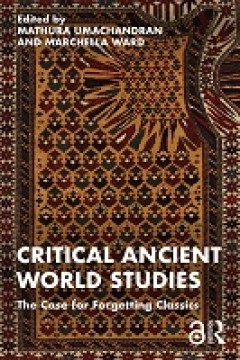
E-Book Critical Ancient World Studies: The Case for Forgetting Classics
This volume explores and elucidates critical ancient world studies (CAWS), a new model for the study of the ancient world operating critically, setting itself against a long history of a discipline formulated to naturalise a hierarchical, white supremacist origin story for an imagined modern West. CAWS is a methodology for the study of antiquity that shifts away from the assumptions and approac…
- Edisi
- -
- ISBN/ISSN
- 9781032120119
- Deskripsi Fisik
- 285 halaman
- Judul Seri
- -
- No. Panggil
- 909.1 UMA c
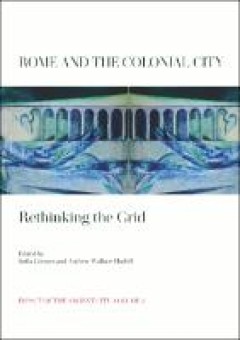
E-Book Rome and the Colonial City: Rethinking The Grid
According to one narrative, that received almost canonical status a century ago with Francis Haverfield, the orthogonal grid was the most important development of ancient town planning, embodying values of civilization in contrast to barbarism, diffused in particular by hundreds of Roman colonial foundations, and its main legacy to subsequent urban development was the model of the grid city, sp…
- Edisi
- -
- ISBN/ISSN
- 9781789257823
- Deskripsi Fisik
- 433 halaman
- Judul Seri
- -
- No. Panggil
- 940 GRE r
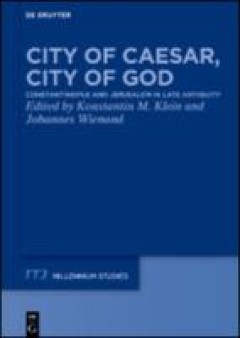
E-Book City of Caesar, City of God: Constantinople and Jerusalem in Late Anti…
This volume explores the entangled history of Constantinople and Jerusalem in Late Antiquity. The two cities were powerful symbols of Empire and Church, interconnected and interdependent in multiple ways. Covering the transition between Antiquity, Byzantium, and the Middle Ages, distinguished international scholars investigate art, ceremony, religion, ideology, and imperial rule in these vibran…
- Edisi
- -
- ISBN/ISSN
- 9783110718447
- Deskripsi Fisik
- 349 halaman
- Judul Seri
- -
- No. Panggil
- 930 KLE c
E-Book Ordinary Jerusalem, 1840-1940: Opening New Archives, Revisiting a Glob…
In Ordinary Jerusalem, Angelos Dalachanis, Vincent Lemire and thirty-five scholars depict the ordinary history of an extraordinary global city in the late Ottoman and Mandate periods. Utilizing largely unknown archives, they revisit the holy city of three religions, which has often been defined solely as an eternal battlefield and studied exclusively through the prism of geopolitics and religio…
- Edisi
- -
- ISBN/ISSN
- 9789004375734
- Deskripsi Fisik
- 615 halaman
- Judul Seri
- -
- No. Panggil
- 933 DAL o
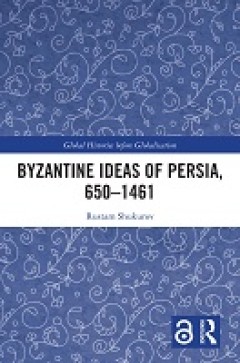
E-Book Byzantine Ideas of Persia, 650–1461
This book offers a study into the perceptions of ancient and medieval Iran in the Byzantine Empire, as well as the effects of Persian culture upon Byzantine intellectualism, society, and culture. Byzantine Ideas of Persia, 650-1461 focuses on the place of ancient Persia in Byzantine cultural memory, both in the "religious" and the "secular" sense. By analysing a wide range of historical sources…
- Edisi
- -
- ISBN/ISSN
- 9781032070681
- Deskripsi Fisik
- 289 halaman
- Judul Seri
- -
- No. Panggil
- 955 SHU b
E-book Most Ancient Egypt
The story of human activity in the land now known as Egypt streches back some five hundred thousand years to an early stage of present, or so-called Quaternary, era in the history of the earth's surface. As elsewhere on that surface this scarcely conceivable span of time covers only a minute fraction of the story of the land itself, the more recent chapters of which take us back approximately s…
- Edisi
- -
- ISBN/ISSN
- -
- Deskripsi Fisik
- 180 hlm
- Judul Seri
- -
- No. Panggil
- 932 HAY m
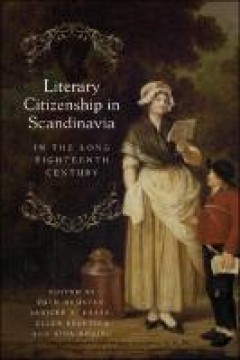
E-Book Literary Citizenship in Scandinavia in the Long Eighteenth Century
Sheds new light on European and regional book markets, the development of a public sphere and the impact of new media on intellectual, social, religious and political change. How do you become a citizen? Ever since printing was introduced, being a member of society increasingly involved reading and writing: for sociability and belonging, instruction and entertainment, profit and charity, spirit…
- Edisi
- -
- ISBN/ISSN
- 9781805430469
- Deskripsi Fisik
- 330 halaman
- Judul Seri
- -
- No. Panggil
- 948 HEM l
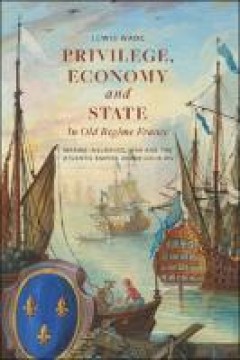
E-Book Privilege, Economy and State in Old Regime France: Marine Insurance, W…
This book closely analyses the rise and fall of Louis XIV's marine insurance institutions in Paris, which were central to the French monarchy's efforts to stimulate commerce, colonial enterprise and economic growth. These institutions were the projects of two leading ministers, Jean-Baptiste Colbert and his son, the Marquis de Seignelay. While both men recognised that marine insurance was cruci…
- Edisi
- -
- ISBN/ISSN
- 9781800108813
- Deskripsi Fisik
- 378 halaman
- Judul Seri
- -
- No. Panggil
- 944 WAD p
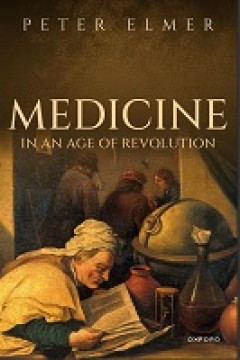
E-Book Medicine in an Age of Revolution
This work is the first major attempt since the 1970s to challenge the idea that the essential engine of medical (and scientific) change in seventeenth-century Britain emanated from puritanism. It seeks to reaffirm the crucial role of the period of the civil wars and their aftermath in providing the most congenial context for a re-evaluation of traditional attitudes to medicine. In the process, …
- Edisi
- -
- ISBN/ISSN
- 9780198853985
- Deskripsi Fisik
- 471 halaman
- Judul Seri
- -
- No. Panggil
- 610.1 ELM m
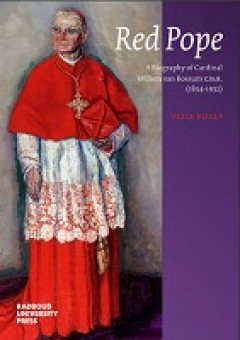
E-Book Red Pope: A Biography of Cardinal Willem van Rossum C.Ss.R. (1854–1932)
- Edisi
- -
- ISBN/ISSN
- 9789493296206
- Deskripsi Fisik
- 669 halaman
- Judul Seri
- -
- No. Panggil
- 922.1 POE r
- Edisi
- -
- ISBN/ISSN
- 9789493296206
- Deskripsi Fisik
- 669 halaman
- Judul Seri
- -
- No. Panggil
- 922.1 POE r
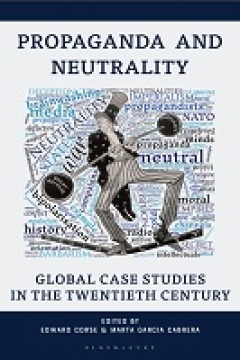
E-Book Propaganda and Neutrality: Global Case Studies in the Twentieth Century
This is the first broad-ranging, comprehensive and comparative study of the concepts of propaganda and neutrality. Bringing together world-leading and early career historians, this open access book explores case studies from the time of the First World War to the end of the Cold War in countries such as Belgium, Greece, Spain, Portugal, Ireland, Switzerland, Vichy France, USA, Argentina, Turkey…
- Edisi
- -
- ISBN/ISSN
- 9781350325531
- Deskripsi Fisik
- 329 halaman
- Judul Seri
- -
- No. Panggil
- 355.02 COR p
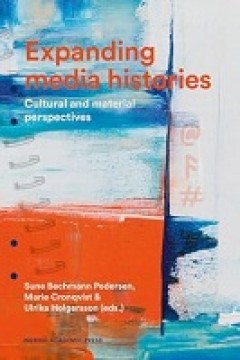
E-Book Expanding Media Histories: Cultural and Material Perspectives
Contemporary media history is a rapidly growing field that extends far beyond traditional studies of technology or institutions such as radio, film, and television. This volume expands the scope further still to analyse ephemeral, mundane phenomena long overlooked by media historiography. In eight original essays, the volume demonstrates the strengths of a broad concept of the media. The first …
- Edisi
- -
- ISBN/ISSN
- 9789189361676
- Deskripsi Fisik
- 256 halaman
- Judul Seri
- -
- No. Panggil
- 302.2 PED e
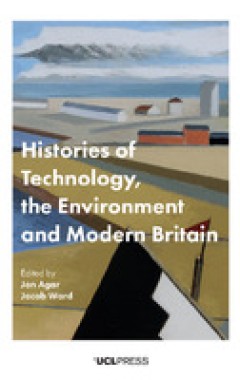
E-Book Histories of technology, the Environment and Modern Britain
Histories of Technology, the Environment and Modern Britain brings together historians with a wide range of interests to take a uniquely wide-lens view of how technology and the environment have been intimately and irreversibly entangled in Britain over the last 300 years. It combines, for the first time, two perspectives with much to say about Britain since the industrial revolution: the histo…
- Edisi
- -
- ISBN/ISSN
- 9781911576570
- Deskripsi Fisik
- 354 halaman
- Judul Seri
- -
- No. Panggil
- 609 AGA h
E-book The Saqqara Necropolis through the New Kingdom : Biography of an Ancie…
The city’s eminent position in the New Kingdom affected the nature of itsdesert-edge necropolis. The latter’s prominence is underlined by the fact thatsome of the kingdom’s most influential priestly, administrative, military, andcourtofficialschosetoconstructtheirtombs11inthisculturallandscapewhich,atthetime,wasalreadyancient.Italsousedtobeaverylivelyplace,onewhereancient people worked, l…
- Edisi
- -
- ISBN/ISSN
- 9789004467149
- Deskripsi Fisik
- 560 hlm
- Judul Seri
- -
- No. Panggil
- 930 STA t
E-book A Bowl for a Coin : A Commodity History of Japanese Tea
n September 2010, I was preparing to order a meal at a restaurant called The Gold of Africa in downtown Cape Town, South Africa. The waitress was dressed in appropriately African garb, and the menu listed specialties from Morocco, Kenya, and Egypt as well as South Africa. As I glanced at the drinks list, however, a most unexpected item caught my eye—Japanese green tea. About six months later,…
- Edisi
- -
- ISBN/ISSN
- 9780824882617
- Deskripsi Fisik
- 249 hlm
- Judul Seri
- -
- No. Panggil
- 950 FAR a
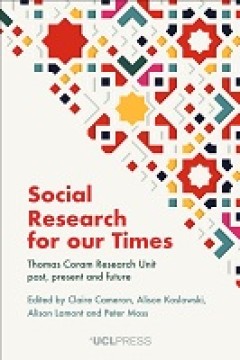
E-Book Social Research for our Times: Thomas Coram Research Unit past, presen…
For 50 years, researchers at UCL’s Thomas Coram Research Unit have been undertaking ground-breaking policy-relevant social research. Their main focus has been social issues affecting children, young people and families, and the services provided for them. Social Research for our Times brings together different generations of researchers from the Unit to share some of the most important result…
- Edisi
- -
- ISBN/ISSN
- 9781800084056
- Deskripsi Fisik
- 418 halaman
- Judul Seri
- -
- No. Panggil
- 907 CAM s
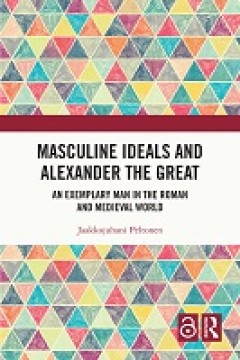
E-Book Masculine Ideals and Alexander the Great
From premodern societies onward, humans have constructed and produced images of ideal masculinity to define the roles available for boys to grow into, and images for adult men to imitate. The figure of Alexander the Great has fascinated people both within and outside academia. As a historical character, military commander, cultural figure and representative of the male gender, Alexander’s pop…
- Edisi
- -
- ISBN/ISSN
- 9781032523781
- Deskripsi Fisik
- 285 halaman
- Judul Seri
- -
- No. Panggil
- 930 JAA m
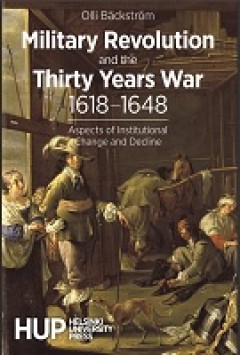
E-Book Military Revolution and the Thirty Years War 1618–1648: Aspects of I…
Military Revolution and the Thirty Years War 1618–1648 investigates change and decline in military institutions during a period of protracted and destructive European warfare. Conceptual background is provided by the Military Revolution thesis, which argues that changes in military technology and tactics drove revolutionary transformation in the way states organised and waged war in the early…
- Edisi
- -
- ISBN/ISSN
- 9789523690912
- Deskripsi Fisik
- 313
- Judul Seri
- -
- No. Panggil
- 303.66 BAC m
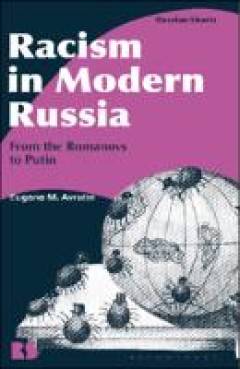
E-Book Racism in Modern Russia: From the Romanovs to Putin
In October 2013, one of the largest anti-migrant riots took place in Moscow. Clashes and arrests continued late into the night. Some in the crowd, which grew to several thousand people, could be heard chanting “Russia for the Russians” with their animus directed towards dark-skinned labor migrants from the southern border. The slogan “Russia for the Russians” is not a recent invention. …
- Edisi
- -
- ISBN/ISSN
- 9781350097315
- Deskripsi Fisik
- 160 halaman
- Judul Seri
- -
- No. Panggil
- 320.56 EUG r
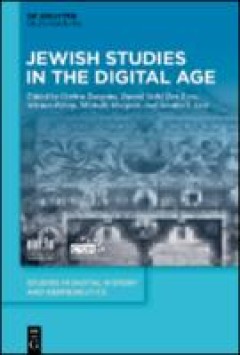
E-Book Jewish Studies in the Digital Age
The digitisation boom of the last two decades, and the rapid advancement of digital tools to analyse data in myriad ways, have opened up new avenues for humanities research. This volume discusses how the so-called digital turn has affected the field of Jewish Studies, explores the current state of the art and probes how digital developments can be harnessed to address the specific questions, ch…
- Edisi
- -
- ISBN/ISSN
- 9783110744828
- Deskripsi Fisik
- 384 halaman
- Judul Seri
- -
- No. Panggil
- 909.83 MAR j
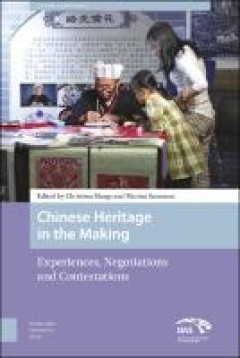
E-Book Chinese Heritage in the Making
The Chinese state uses cultural heritage as a source of power by linking it to political and economic goals, but heritage discourse has at the same time encouraged new actors to appropriate the discourse to protect their own traditions. This book focuses on that contested nature of heritage, especially through the lens of individuals, local communities, religious groups, and heritage experts. I…
- Edisi
- -
- ISBN/ISSN
- 9789048534067
- Deskripsi Fisik
- 299 halaman
- Judul Seri
- Experiences, Negotiations and Contestations
- No. Panggil
- 895.1 MAA c
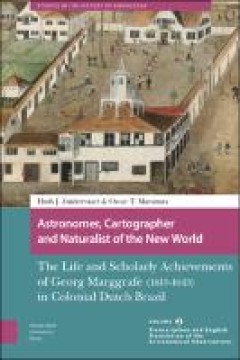
E-Book Astronomer, Cartographer and Naturalist of the New World
Georg Marggrafe, Colonial Dutch Brazil, Early Modern Science, Astronomy, 17th century
- Edisi
- -
- ISBN/ISSN
- 9789463722285
- Deskripsi Fisik
- 194 halaman
- Judul Seri
- The Life and Scholarly Achievements of Georg Marggrafe (1610-1643) in Colonial Dutch Brazil. Volume 2
- No. Panggil
- 980 ZUI a
E-book (Trans)missions : Monasteries as Sites of Cultural Transfers
From the Early Middle Ages onwards, both university and monastic theologians were occupied and concerned with the spiritual struggle against sin. The idea was based on the notion that in this world, people are surrounded by the power of the Devil and are left at the mercy of the Devil’s temptations. The enclosed monastery on the other hand represented a…
- Edisi
- -
- ISBN/ISSN
- 9781803273259
- Deskripsi Fisik
- 189 hlm
- Judul Seri
- -
- No. Panggil
- 274 BRE t
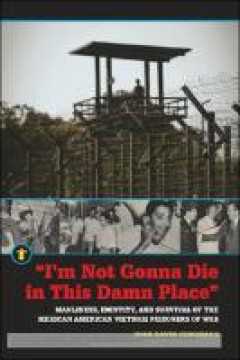
E-Book I'm Not Gonna Die in This Damn Place
By the time of the Vietnam War era, the “Mexican American Generation” had made tremendous progress both socially and politically. However, the number of Mexican Americans in comparison to the number of white prisoners of war (POWs) illustrated the significant discrimination and inequality the Chicano population faced in both military and civilian landscapes. Chicanos were disproportionately…
- Edisi
- -
- ISBN/ISSN
- 9781628953213
- Deskripsi Fisik
- 217 halaman
- Judul Seri
- -
- No. Panggil
- 940.54
E-book The Currency of Empire : Money and Power in Seventeenth-Century Englis…
his book examines the pivotal role that silver and gold money played in the formation and working out of England’s Amer-ican colonial proj ect in the seventeenth century. The book argues, first, that money was the primum mobile, or prime mover, of En glish imperial action and overseas activity, including the impulse for colonization, the regulation of colonial trade, and the introduction…
- Edisi
- -
- ISBN/ISSN
- 9781501755781
- Deskripsi Fisik
- 396 hlm
- Judul Seri
- -
- No. Panggil
- 970.03 BAR t
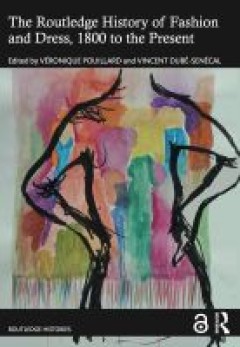
E-book The Routledge History of Fashion and Dress, 1800 to the Present
The time span covered by The Routledge History of Fashion and Dress starts in the nineteenth century, with the aftermath of the consumers’ revolution, and reaches all the way to the present. The fashion and garment industries have been international from the beginning and, as such, this volume looks at the history of fashion and dress through the lenses of both international and global histor…
- Edisi
- -
- ISBN/ISSN
- 9781000963427
- Deskripsi Fisik
- 576
- Judul Seri
- -
- No. Panggil
- 001.3
E-book The Return of the Buddha : Ancient Symbols for a New Nation
The popular English daily TheHindu carried a news item in its Friday Review on September 10, 2011 under the title ‘Kapilavastu Relics to be displayed in Sri Lanka’. The article referred to the unearthing of the relics at Piprahwa in the present Indian state of Bihar by Major General (retired) Alexander Cunningham (1814–93), the first head of the Archaeological Survey …
- Edisi
- -
- ISBN/ISSN
- 9780415711159
- Deskripsi Fisik
- 313 hlm
- Judul Seri
- -
- No. Panggil
- 930 RAY t
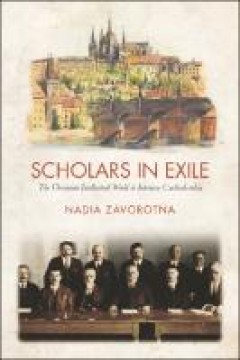
E-book Scholars in Exile
Throughout the 1920s and 30s Prague was the intellectual center of Ukrainian émigrés in Europe, not least because of significant financial support from the Czechoslovak government and its first president, Tomáš Garrigue Masaryk, for émigré students and intellectuals. On the basis of extensive archival research in Ottawa, Prague, and Kyiv, Zavorotna outlines the continuation of Ukrainian s…
- Edisi
- -
- ISBN/ISSN
- 9781487531577
- Deskripsi Fisik
- -
- Judul Seri
- -
- No. Panggil
- 940
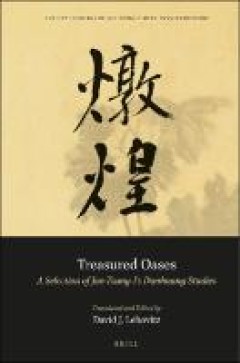
E-book Treasured Oases: A Selection of Jao Tsung-i’s Dunhuang Studies
Dunhuang: China’s traditional northwest frontier and overland conduit of exchange with the Old World. Jao Tsung-i: China’s last great traditional man of letters, polymath, and pioneer of comparative humanistic inquiry during Hong Kong’s global heyday. Jao and Dunhuang had a special relationship that this book makes accessible in English for the first time. Inside, Jao proposes an entirely…
- Edisi
- -
- ISBN/ISSN
- 9789004522558
- Deskripsi Fisik
- -
- Judul Seri
- -
- No. Panggil
- 910 02
E-book Ancient Olive Presses and Oil Production In Cyrenaica (North-East Libya)
Previous works on ancient olive oil and wine produc-tion in the ancient Mediterranean (Frankel 1999; Brun 2003b, 2004) and North Africa (Mattingly 1985; 1988a-d; 1993; 1994; 1995; 2009; Mattingly and Hitchner 1993) have broadened our knowledge on specifications, tech-niques and scale of production of Roman presses. These works discuss how this significantly contributed to …
- Edisi
- -
- ISBN/ISSN
- 9781915808011
- Deskripsi Fisik
- 178 hlm
- Judul Seri
- -
- No. Panggil
- 939.7 BUZ a
E-book Disturbing Times : Medieval Pasts, Reimagined Futures
These are disturbing times. Scholars in medieval and premod-ern studies are tired of explaining why, yet this labor continues to be performed by those who often have the least personal and professional security.1 A case in point here is Mary Rambaran-Olm, who consistently advocated, and with considerable risk for her own scholarly career and personal well-being, for the re-tire…
- Edisi
- -
- ISBN/ISSN
- 9781950192762
- Deskripsi Fisik
- 385 hlm
- Judul Seri
- -
- No. Panggil
- 935 KAR d
E-book Cultures in Conflict : Religion, History and Gender in Northern Europe…
For the debates about the ultramontanization of Catholicism in the course of the nineteenth century the contrast of an early example of pilgrimages and a later case during the heyday of ultramontanism can be revealing. Though sim-ilar in social and gender aspects there are differences on the level of organiza-tion, inherent ultramontanism and transnational traits. The phenom…
- Edisi
- -
- ISBN/ISSN
- 9783631847312
- Deskripsi Fisik
- 222 hlm
- Judul Seri
- -
- No. Panggil
- 274 BLA c
E-book The Nile : Natural and Cultural Landscape in Egypt
Although they contain a wealth of geographical information, land registers have not been fully exploited with the aim of reconstructing the Nile Valley landscape. However, compared to other written or pictorial sources, they have several advantages. 1) The geographical information they contain is based on onsite observation and therefore directly reflects the r…
- Edisi
- -
- ISBN/ISSN
- 9783839436158
- Deskripsi Fisik
- 371 hlm
- Judul Seri
- -
- No. Panggil
- 932 ANT t
E-book Dangerous Gifts : Imperialism, Security, and Civil Wars in the Levant,…
Two months after his arrival in Ottoman Syria in September 1860, the Prussianbureaucrat Johann Ludwig Guido von Rehfues (1818–97) and his colleagues setoff on a hauntingly memorable journey to Damascus.² Leaving Beirut early in themorning, they rodefirst up Mount Lebanon. From all the heights to which theirpath took them, they could see the smoke-stained rubble of onceflourishingvillages in …
- Edisi
- -
- ISBN/ISSN
- 9780198852964
- Deskripsi Fisik
- 418 hlm
- Judul Seri
- -
- No. Panggil
- 909.81 OZA
E-book When Egypt Ruled the East
On May 19, 1798 a French fleet under the command of the young general Napoleon Bonaparte sailed from Toulon in order to challenge the power of England in Egypt. He hoped by the conquet of the Nile to construct a French stronghold in the East from which to threaten British power and wealth in India. While the Nile Valley soon fell into French hands, confused political circumstances a home forced…
- Edisi
- -
- ISBN/ISSN
- 0226771989
- Deskripsi Fisik
- 304 hlm
- Judul Seri
- -
- No. Panggil
- 932 STE w
E-book How Computers Entered the Classroom, 1960–2000 Historical Perspectives
In the history of education, the question of how computers were introduced into European classrooms has so far been largely neglected. This edited volume strives to address this gap. The contributions shed light on the computerization of general education from a historical perspective, by looking closely at the different actors, political rationales and ideologies, as well as financial, politic…
- Edisi
- -
- ISBN/ISSN
- 9783110780147
- Deskripsi Fisik
- 247 hlm
- Judul Seri
- -
- No. Panggil
- 609 CAR h
E-book AP History : Modern
The structure of the unit guides respects new AP teachers’ time by providing one possible sequence they can adopt or modify rather than having to build from scratch. An additional benefit is that these units enable the AP Program to provide interested teachers with formative assessments—the Personal Progress Checks—that they can assign their students at the end of each unit to gauge progr…
- Edisi
- -
- ISBN/ISSN
- -
- Deskripsi Fisik
- -
- Judul Seri
- -
- No. Panggil
- 900 AHL a
E-book Introduction to The Study Of History
The historian works with documents. Documents are the traces which have been left by the thoughts and actions of men of former times. Of these thoughts and actions, however, very few leave any visible traces, and these traces, when there are any, are seldom durable; an accident is enough to efface them. Now every thought and every action that has left no visible traces, or none but what have si…
- Edisi
- -
- ISBN/ISSN
- -
- Deskripsi Fisik
- 192 hlm
- Judul Seri
- -
- No. Panggil
- 900 SEI i
E-book A Brief History Hawaiian People
Although it is true that history has more do with men and nations with the countries in which they act their parts, still it is within her province to show the position, climate, and physical features of a country have influenced the character and fortunes of the people who inhabit it.
- Edisi
- -
- ISBN/ISSN
- -
- Deskripsi Fisik
- 367 hlm
- Judul Seri
- -
- No. Panggil
- 996.9 ALE a
E-book Everyday Cosmopolitanisms : Living the Silk Road in Medieval Armenia
Sitting in the shadow of the north wall of the ruined caravan house (karavanatun) at Arai-Bazarǰuł on a clear day in summer, one can see four mountain peaks. To the west above Aragats, the tallest mountain in the Republic of Armenia, clouds catch and gather, threatening to descend and change the day from sun to hail in minutes. To the northeast, the stooping shoulder of Tełenis hefts a load …
- Edisi
- -
- ISBN/ISSN
- 9780520380936
- Deskripsi Fisik
- 206 hlm
- Judul Seri
- -
- No. Panggil
- 947.1 FRA e
E-book In the Lands of the Romanovs : An Annotated Bibliography of First-han…
When in 1613, following the Time of Troubles, the first Romanov came to the throne of Muscovy, sixty years had elapsed since, in the words of Richard Hakluyt, “the strange and wonderful Discoverie of Russia” by the English. It was Hakluyt who gathered together in his Principal navigations, voiages, [traffiques,] and discoueries of the English nation (first …
- Edisi
- -
- ISBN/ISSN
- 9781783740598
- Deskripsi Fisik
- 440 hlm
- Judul Seri
- -
- No. Panggil
- 947 CRO i
E-book Arcticness : Power and Voice from the North
People and communities, lives and livelihoods. These define the Arctic, just as with all other populated areas on the planet. Is there, then, any-thing special, specific, exceptional or unique about the Arctic? To the peoples in the Arctic, the answer is ‘of course’.Because it is home.As Arctic literature is fond of stating, there is no single Arctic. Definitions abo…
- Edisi
- -
- ISBN/ISSN
- 9781787350137
- Deskripsi Fisik
- 206 hlm
- Judul Seri
- -
- No. Panggil
- 998 BRE a
E-book Finding Jerusalem: Archaeology between Science and Ideology
Finding Jerusalem is not about bringing back to life ancient stones and walls hidden underground. It is not an adventurer’s quest for long-lost treasures and monuments of a city venerated by the three Abrahamic traditions. And least of all, it is not an attempt to uncover the biblical truth. Finding Jerusalem: Archaeol-ogy between Science and Ideology is …
- Edisi
- -
- ISBN/ISSN
- 9780520968073
- Deskripsi Fisik
- 274 hlm
- Judul Seri
- -
- No. Panggil
- 933 GAL f
E-book Ancient Knowledge Networks : A Social Geography of Cuneiform Scholarsh…
This is a book about how knowledge travels, in minds and bodies, writ-ings and performances. It explores the forms knowledge takes, the mean-ings it accrues and how they are shaped by the peoples and places that use it. This is also a book about the relationships between political power, family ties and literate scholarship in the ancient Middle East of the first millennium bc (see Tables 3a…
- Edisi
- -
- ISBN/ISSN
- 9781787355941
- Deskripsi Fisik
- 340 hlm
- Judul Seri
- -
- No. Panggil
- 935 ROB a
E-book The Hegemony of Heritage
What do we see when we look at a monument, and how do we come to see what we do? Far from the innocent ravages of time, the calculated aesthetics of the Indian temple today result from the confluence of religious performance, the politics of identity formation, the tension between neoliberal and socialist preservation mod-els, and the display, erasure, and fragmentation of the visual and materi…
- Edisi
- -
- ISBN/ISSN
- 9780520296336
- Deskripsi Fisik
- 340 hlm
- Judul Seri
- -
- No. Panggil
- 720.1 STE t
E-book The Scientific Revolution Revisited
This book is about interpreting the Scientific Revolution as a distinctive movement directed towards the exploration of the world of nature and coming into its own in Europe by the end of the seventeenth century. The famed English historian Lord Acton (1834-1902) is said to have advised that problems were more important than periods. If he held this o…
- Edisi
- -
- ISBN/ISSN
- 9781783741243
- Deskripsi Fisik
- 158 hlm
- Judul Seri
- -
- No. Panggil
- 940 TEI t
 Karya Umum
Karya Umum  Filsafat
Filsafat  Agama
Agama  Ilmu-ilmu Sosial
Ilmu-ilmu Sosial  Bahasa
Bahasa  Ilmu-ilmu Murni
Ilmu-ilmu Murni  Ilmu-ilmu Terapan
Ilmu-ilmu Terapan  Kesenian, Hiburan, dan Olahraga
Kesenian, Hiburan, dan Olahraga  Kesusastraan
Kesusastraan  Geografi dan Sejarah
Geografi dan Sejarah